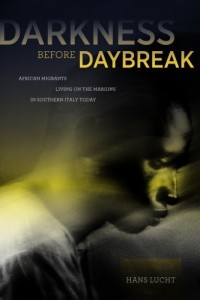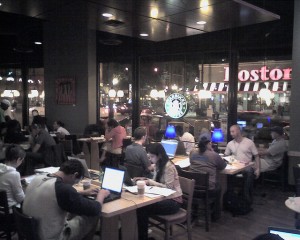There is no doubt that in the United States, specifically at Davidson College, we take for granted our ability to access the Internet. It has become a natural part of our everyday lives, checking email, posting to Twitter, Googling random facts, using an interactive map for directions, and even meeting strangers on Tinder. What a change of pace, then, it is to learn about how this technology fits into other communities.
 We use our cellphones and Internet access for anything and everything, but imagine if your phone or calling minutes were used as a bartering tool or the only symbol of your independence. In anthropologist Hans Lucht’s book Darkness Before Daybreak, he tells the story of fishermen who emigrate from Africa to Italy, slave over dangerous jobs for measly paychecks, and spend their hard earned incomes on cellphones instead of a safe place to stay. To these immigrants, having a cellphone means they belong, that they are not on the lowest rung of the totem pole, but equal with other cellphone users.
We use our cellphones and Internet access for anything and everything, but imagine if your phone or calling minutes were used as a bartering tool or the only symbol of your independence. In anthropologist Hans Lucht’s book Darkness Before Daybreak, he tells the story of fishermen who emigrate from Africa to Italy, slave over dangerous jobs for measly paychecks, and spend their hard earned incomes on cellphones instead of a safe place to stay. To these immigrants, having a cellphone means they belong, that they are not on the lowest rung of the totem pole, but equal with other cellphone users.
Our reliance and other cultures’ reliance on these technologies prove that these are in fact spaces that should be studied closely. As Coleman writes, this dependence is not simply “a quintessential nonspace… the bland and uniform spaces of modernity, such as highway rest stops and motels” (Coleman 2010:496).

Our Internet use defines the world around us, in schools, homes, libraries, stores, and other everyday places that now rely on technology to function. Whether we have free reign on anything we post and access online or if the government dominates the information available or a community has no Internet access at all, technology makes an significant impact on a community.
Darkness Before Daybreak Cover Art